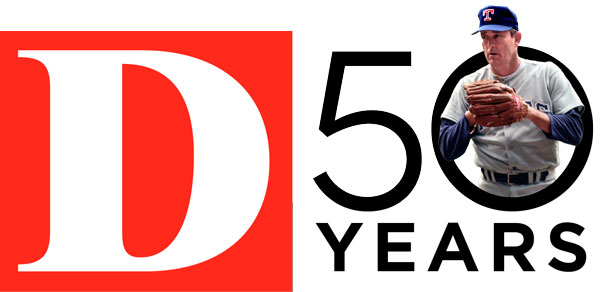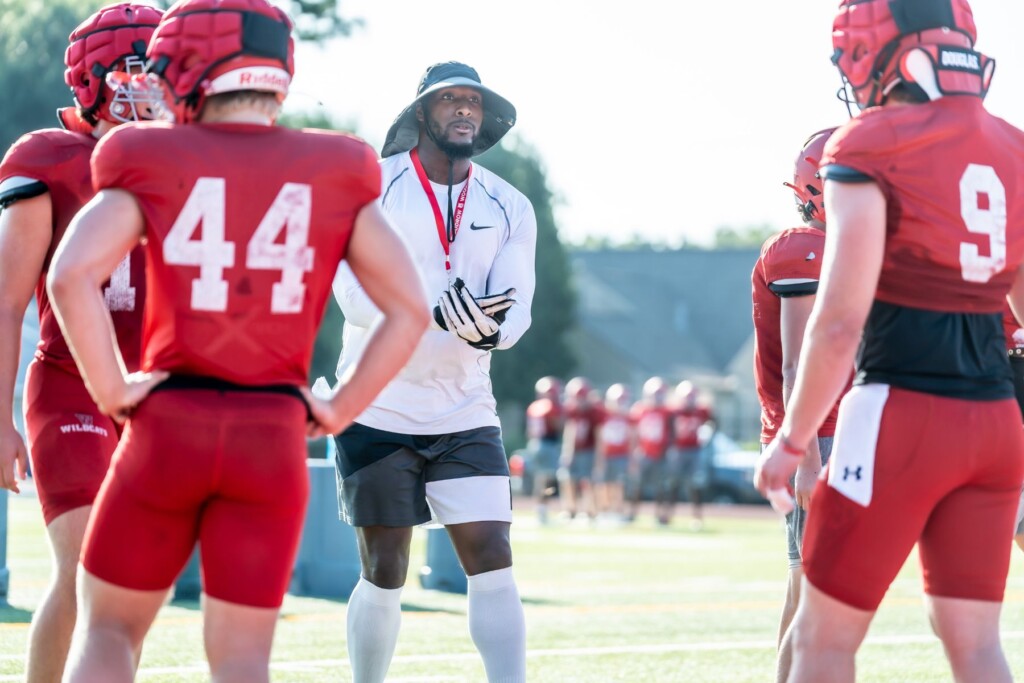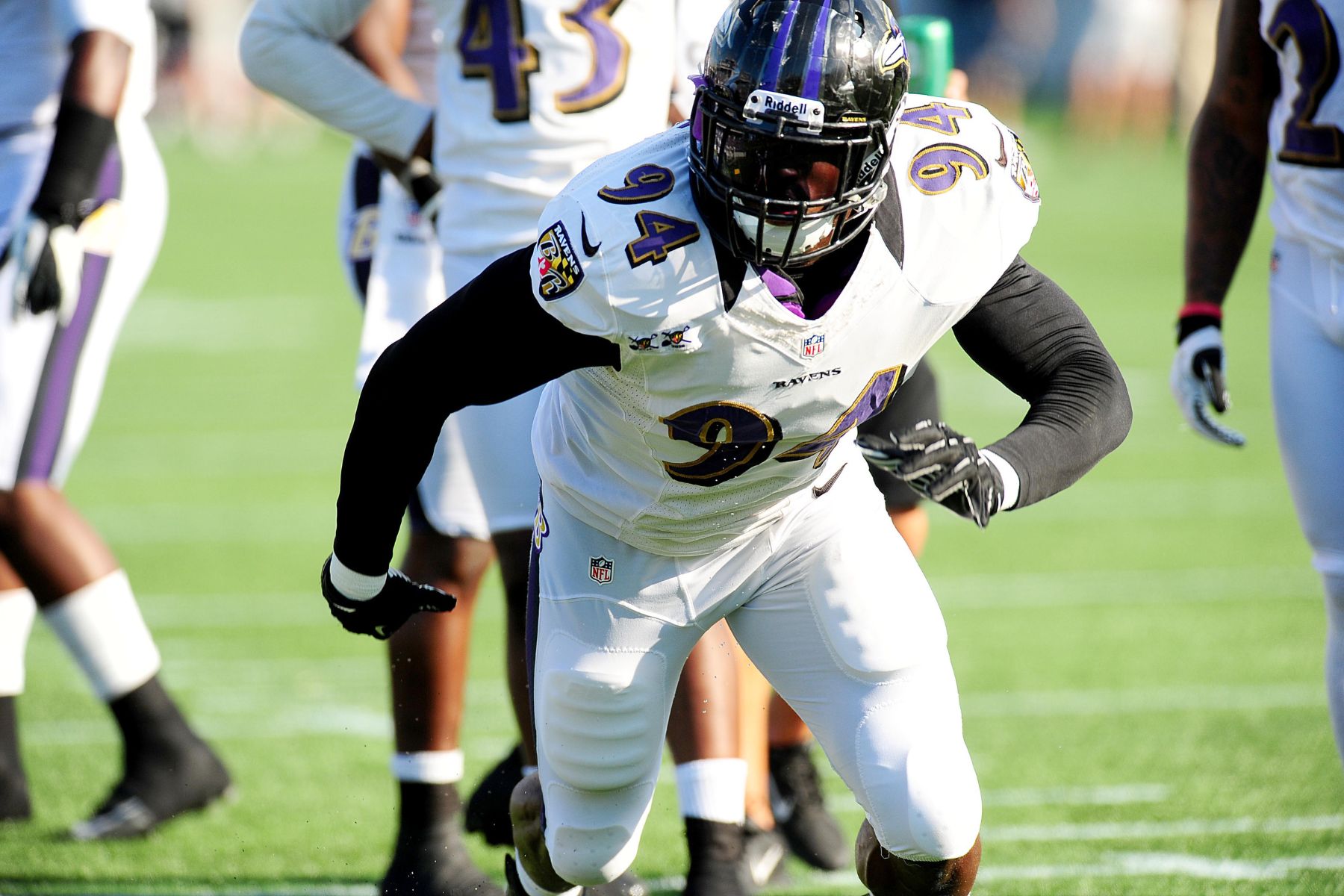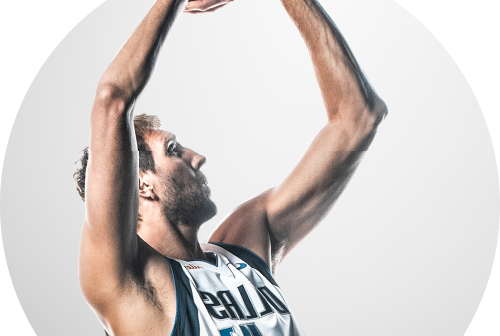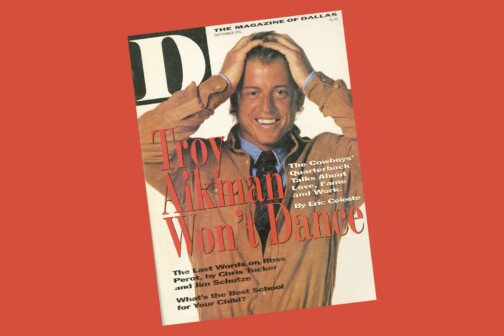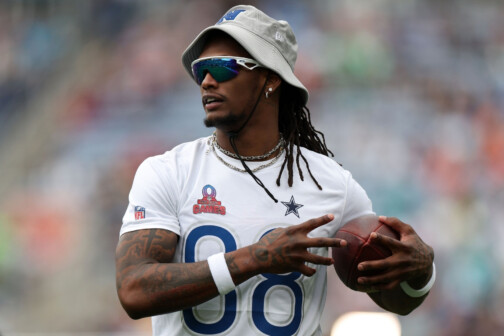The memory is fuzzy, its details obscured by a decade gone by. He doesn’t remember the opposing quarterback or even the opposing team, but the feeling of it all remains clear. Sergio Kindle, then a defensive lineman with the Baltimore Ravens, had burst into the backfield. Whoever that quarterback was, Kindle suffocated him.
“I had him,” he remembers. “Both arms. But somehow—”
Somehow, that quarterback had slipped away.
That was the closest Kindle ever got to NFL glory. He’d once seemed destined for so much more.
In 2002, he’d arrived at Woodrow Wilson High in East Dallas, a 14-year-old dynamo of man-sized proportions, crashing into the Texas high school football scene. A fearsome linebacker and overpowering running back who almost never came off the field, Kindle was considered one of the top recruits in the country by his senior year. He landed at the University of Texas, recording 10 sacks as a junior and earning All-Big 12 honors. He began his senior season on the watch list for several major awards and finished it in the 2010 BCS title game against Alabama. In a losing effort against the Crimson Tide, Kindle recorded six tackles and 2.5 sacks.
All those exploits seemed to be a prelude to a stellar professional career. The Ravens drafted him in the second round that year, one pick before future Hall of Fame tight end Rob Gronkowski. One of college football’s best defensive ends was joining one of the NFL’s best defenses. Kindle was, as former Woodrow coach Bobby Estes puts it, “on the road to being one of the best ever.” And then, just when pro football stardom seemed within his grasp, it evaded him, leaving him empty-handed.
Late one night in Austin, mere days before he was set to report to his first pro training camp, Kindle had stumbled in the dark of an unfamiliar house and crashed down a flight of stairs. He suffered a skull fracture and was in a medically induced coma for two days while doctors alleviated pressure on his brain through a hole in his cranium. He doesn’t remember waking up or any of the several days that followed, but he knows doctors told him that resuming a football career was out of the question.
He resolved to test that diagnosis, but he was never the same after that. He lost hearing in his left ear and his equilibrium with it. Over two years with the Ravens, he appeared in three games, recording just one tackle. He doesn’t remember the player he brought down. In 2013, just weeks before the Ravens won the Super Bowl, he asked for his release. He didn’t catch on anywhere else and never played again. Despite appearing in one game that year for the eventual champions, he did not receive a ring.
“The fact that I didn’t get to contribute the way I wanted to, it wasn’t memorable at all,” he says.
But if his pro career feels like a footnote, it is no longer the end of his football journey. Last month, Kindle joined Woodrow as an assistant coach, after more than a decade away from the game. Those years have passed in anonymity. Kindle worked nine jobs in the past 10 years, he says, including selling cars, driving for Amazon, and cordoning off highway accidents with traffic cones. But now he once again roams the practice fields where his football story began. For Kindle and for Woodrow, it’s a happy new chapter to what had been a sad tale. He had made it and then, painfully, lost it.
Now, absent from the game more than long enough to miss it, Sergio Kindle starts anew.
One Sunday afternoon in late July, Kindle pushes his large frame through the door of a Liberty Burger in East Dallas. It sits a two-minute drive from Woodrow, but it hadn’t been here when he starred for the Wildcats. A lot has changed since he’s been away, even the school itself, which now has a new wing. Kindle, though, looks the same.
His face is youthful, and his body looks solid and strong. When he played for the Ravens, Kindle stood 6-foot-4 and weighed 236 pounds. As he settles onto a barstool, those dimensions still seem about right. He signals to the bartender for a glass of ice water. It’s best to stay hydrated. Freshman practice begins the next day, and the Texas heat will be punishing.
It doesn’t seem that anybody recognizes him, but Kindle used to be a big deal around here. Woodrow football had been close to moribund before he showed up. The Wildcats have a rich history in the sport—it is one of only two high schools to boast a pair of Heisman Trophy winners, Tim Brown (1987) and Davey O’Brien (1938)—but it was also an ancient one. Woodrow had made the playoffs four times in 50 years before Kindle’s freshman year. But with No. 2 terrorizing opposing offenses and defenses alike, the Wildcats made the postseason four years in a row.
Kindle left Woodrow having earned all-state nods on both sides of the ball, with 5,632 career rushing yards and 86 touchdowns along with 411 career tackles. He was considered either the first- or second-best player in the state. His competition in that regard was Highland Park quarterback Matthew Stafford, who went on to star at Georgia before going first in the 2009 draft. Stafford is still playing, a Super Bowl ring on his finger as he preps for his 15th season in the NFL. That life is all very distant to Kindle, who takes a sip of water as a TV blasts training camp updates from around the league.
A clip from a Ravens practice flashes on the screen. If such a sight once caused him pangs of bitterness, that’s no longer the case. “You look at some of these games and be like, ‘Oh, I could have done that,’” he says. “More so back then than now.” He does have regrets, but he’s long made peace with them. He wishes he’d been a better student at UT. He wishes he’d made better choices off the field, like his two arrests for drunken driving—one in college, one in the pros—and an incident at UT in which he drove his car into an apartment building while texting. He tried to learn from them and move forward, and those indiscretions now reside far in his past. So does his fall, although its effects reverberate.
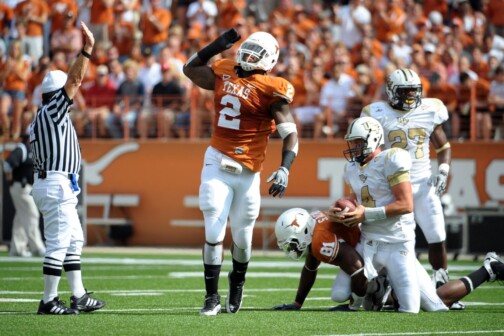
If anything still eats at Kindle, it’s the riddle of what happened that July night in 2010, three months after Baltimore drafted him. While visiting a woman at her Austin home, he rose in the middle of the night to use the restroom. A wrong turn sent him down the stairs, although Kindle remembers little about it. He recalls the sensation of falling. Then, for about five or six days, nothing. Friends and family who rushed to his bedside filled in some of the blanks—how Kindle had tried to escape the hospital and get on a bus soon after waking, how he’d been unusually combative with the nurses while on pain meds. But the circumstances of his fall have never revealed themselves.
For a while, Kindle simply believed he tripped, but now he has a hard time buying that explanation. “It’s weird because I walk up and down stairs and have been my whole life, regardless of what the circumstances are,” he says. He gestures to the bottles of liquor behind the bar, as if to address the rumor within the Woodrow community that alcohol had been involved. “It ain’t like I can’t do it.” Absent any witness to his fall, his mind has turned to darker explanations for his injury. “I feel like maybe I got attacked or something. It has to be,” he says. “I don’t understand how I ended up falling down some stairs.”
The results were calamitous. He spent much of the next several months in rehab facilities in Dallas, determined to return to the field and begin his pro career. Estes, his high school coach, says that if Kindle had given up football, he could have pocketed a sizable insurance payout. “He opted against it and rolled the dice,” the coach says. Because of his injury, the path to riches would be an uphill climb. Kindle hadn’t yet signed a pro contract, and thanks to the injury, the Ravens would offer him only the minimum for his draft slot—$320,000—with no signing bonus. By contrast, Gronkowski went a pick later and signed for four years and $4.4 million.
Kindle did make it back on the field, but he was never the same. The damage to his left ear made it difficult to hear audibles from his defensive captains, even with an NFL-approved speaker placed in his helmet. “I was blowing calls like crazy,” he says. Midway through the 2012 season, the Ravens waived him and then assigned him to the practice squad. In January of 2013, as the Ravens began their march to a title, he asked to be released. He has regrets about that.
“I was having some issues with the special teams coach,” Kindle says. “Looking back on it, it was foolish, but I felt like he had it out for me for some reason.”
A month later, Kindle sat at home as his Ravens teammates basked in adulation at a Super Bowl parade. He didn’t yet know it, but he would never play football again.
Last month, Kindle was about to enter a Dallas Independent School District job fair when his phone rang. He’d recently moved back home from Austin—and into the house he’d bought from his father, who died last year from prostate cancer—and he was determined to get into coaching. Word had gotten around the tight-knit high school football community, and Kindle answered the phone to hear the voice of second-year Woodrow head coach John Fish.
Don’t bother with the job fair, Fish told him. I want you on my staff.
It was a sudden conclusion to what had been a decade-long search for purpose. For Kindle, the previous 10 years have provided a steady dose of real life. He tried out unsuccessfully for the Giants after his release, and then he went back to school to finish his degree. (“You realize how much easier it is to be a student than to be an athlete and a student,” he says.) For two years, no NFL team called.
Finally, professional football offered one last shot. The Eagles and Bears wanted him to work out. Kindle was selling cars at the time, and he left work early for two weeks to hit the gym and prepare. But it wasn’t enough. “I could feel it,” Kindle says. “Like, ‘Shit, I’m not even close.’” This time, he walked off the field knowing he’d never return.
Since then, he’s worked a steady stream of odd jobs. After selling cars, he sold wine and liquor. He delivered construction equipment and mobile homes, delivered food and medications to restaurants and pharmacies, delivered packages for Amazon. For three months, he was a highway emergency response operator, responding to car crashes and redirecting traffic. He quit because the carelessness of Texas motorists ate at his nerves. “They’re supposed to slow down and get over a whole lane, and they don’t,” he says. “You feel an 18-wheeler shake a whole bridge, and I’m like, ‘Nah, I’m out.’”
All the while, he’d tried to break into coaching. For a brief period, he’d interned with the Longhorns, but the grind proved to be too difficult. He’d wake at 3 in the morning and head to campus at 5, then leave at 10 for his day job at Amazon. When that fizzled, he focused on getting his teaching certification. Because his GPA was below 2.5—“I don’t know how I made it in football, man,” he says—he had to apply through an alternative certification program. But he failed the certification test three times, coming within six points of passing on his final attempt. That was seven years ago. The close call bummed him out so much that he didn’t try again.
But the move home to Dallas brought renewed optimism. DISD was desperate for teachers, he learned, and because it is considered a District of Innovation—meaning, under Texas law, DISD can bypass certain state requirements to fill its unique needs—it was much easier to get in the door.
He and Fish had met only once, a year earlier, when Woodrow played South Oak Cliff. At the time, Fish had put a bug in his ear: If you ever want to coach, let me know. Now that Kindle was back in Dallas, word had gotten around. Woodrow had a slot open for a special ed teacher. Fish quickly secured the approval of his principal and hustled to make sure Kindle didn’t so much as talk to the competition.
“Had he walked into that job fair,” Fish says, “I’m sure every other school in that building would have tried to grab him.”
The entire hiring process took Fish less than a day. For Kindle, it had taken much, much longer.
Kindle is back in his old stomping grounds now, set to teach and coach defensive linemen. Enough time has passed that some of his players aren’t aware of his exploits. They don’t remain in the dark for long, though. In 2014, the school decorated its doors with images of its most athletically accomplished alumni. Every day, Woodrow students walk through one emblazoned with a photo of Kindle in his crisp Longhorn whites. It’s a graphic that hints at a tantalizing alternate future, one filled with NFL fame and riches, but Kindle has long since made peace with his life’s dramatic turn.
“You always look back on it like, ‘Oh, I missed out on so much money,’ or ‘What could my career have been?’” he says. “But when I hear what the doctors were saying, that I could have died, it puts it in a whole different perspective. For people who believe in that type of stuff, maybe the plan wasn’t to be in the NFL for me. Maybe the plan was for me to find my wife and get married and finally get to where I’m at now.” He and his wife, Bonnie, whom he met while with the Ravens, now have two boys, Semaj, 11, and Elliott, 6.
That plan has brought him to the practice field he ruled as a teen, sweltering under the same Texas sun. Kindle is still getting a feel for coaching—“I had to take a course on tackling,” he says with a laugh—but he’s got the raw material. He has performed at the highest level and knows what it takes to get there. He also knows how few make it, how easy it is to screw it up, and how hard it is when the playing time ends. If wisdom is the residue of one’s choices, good and bad, he’s covered in it.
“I know he’s gone through a terrific amount of hardship,” Estes says, “but that path, that rough spot, might have prepared him for a lifetime of doing it the right way.”
Estes had been there for Kindle at his highest and at his lowest. The coach once suggested to him that God swings a stick to nudge the wayward back onto the right path. Kindle joked that the Almighty could be a bit gentler next time. Now as a coach himself, Kindle wants to ensure that his players don’t require such severe course correction. After high school comes real life, as he well knows. “They’ve got to be prepared for that, too,” he says, “the realization that after high school, you’re grown up and the real world is unforgiving.”
They will lunge and miss. They will fall and struggle to get back up. But Kindle knows that with persistence and patience, and with a little bit of help, they can still wind up exactly where they should. For Kindle, that’s on a football field.
“You don’t ever get that football out your system,” he says. “At least not me.”
